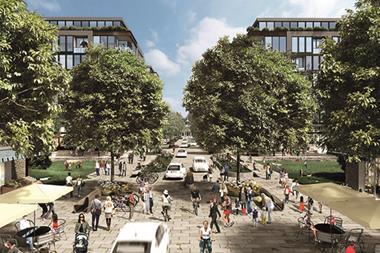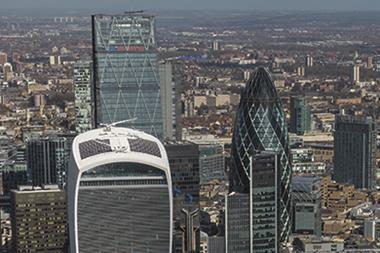Proptech is often discussed in terms of disruption within the property industry, its impact on companies at this specific point in time and its potential influences a short distance in the future.

Discussions regarding the impacts of proptech on property over the next decade usually focus on the consolidation of companies, a move to more consultative roles for agents and an increase in transparency and ROI for those committed to implementing tech solutions.
Although all important points, I believe a truer picture is likely to be gleaned from future gazing if we focus on the wider innovation that may affect the property industry.
Proptech, as it is understood, is just the seed and the wider effects of technology will have a much greater impact in future.
Decades away
We shouldn’t overemphasise proptech start-ups in their current form but rather consider how their evolution will create a very different landscape for the property industry.
Future gazing might not be strictly scientific but it’s an important practice. Consider driverless cars, for example. Assuming that the technology to support them becomes fully functional within the next 10 years, it’s likely they will still take another decade to become the norm.

Factor in a parking location app such as ParkJockey - which can locate empty spaces anywhere - and a reasonable assumption is that in 20 years a car may drive off after dropping off its passenger to find alternative parking with no need to park near to human activity.
Will a future of self-parking driverless cars mean we’ll dispense with conventional underground or street-level parking? And what of developments that already contain large car-parking facilities? If these voids constitute potentially valuable assets, should we consider their utilisation now - perhaps to create affordable housing?
Contingency plans
Extrapolating from this single tech advance we can envisage many potential impacts on property, from planning to development to social consequences. Shouldn’t we start to consider contingency plans?
Then there is data. Start-ups such as VTS, PlaceMake.io, Shared Property Data or CompStak have huge potential due to their data. Consider if they expanded beyond property into other sectors or if they merged. The ways we conduct business would change, as would how we interact with data and how we move around physically.
The impact of tech and ecommerce on retail has been significant. According to We Are Social, 92% of the UK’s 65-million population are internet users.
If online shopping continues to grow and bricks-and-mortar formats close, we may need to consider how we reshape our town centres and how we reuse the land left behind.
Will there be vast industrial sites to hold the stock for multiple online retailers? Will this affect the green belt as developers identify additional sites?
Proptech doesn’t simply herald the advent of tech within property; we may also see tech from other sectors start to take hold. We’ve already seen Uber collecting data that will affect city planning and TfL is beginning to track passenger movement via their mobiles, which may inform future decisions on infrastructure improvement.
Neither are proptech companies but both are teetering on the edge of creating significant built environment impacts.
We should start looking ahead now. Our cities and our everyday lives may change beyond recognition. No one can predict the future but it’s worth starting to consider it, because the world in 20 years’ time will look very different.
James Morris-Manuel is EMEA sales director at Matterport

































No comments yet